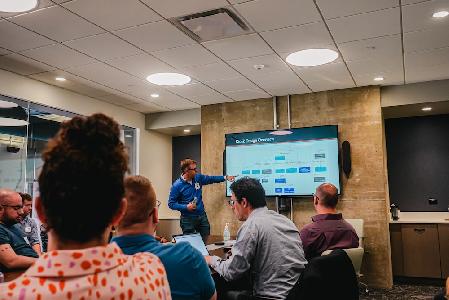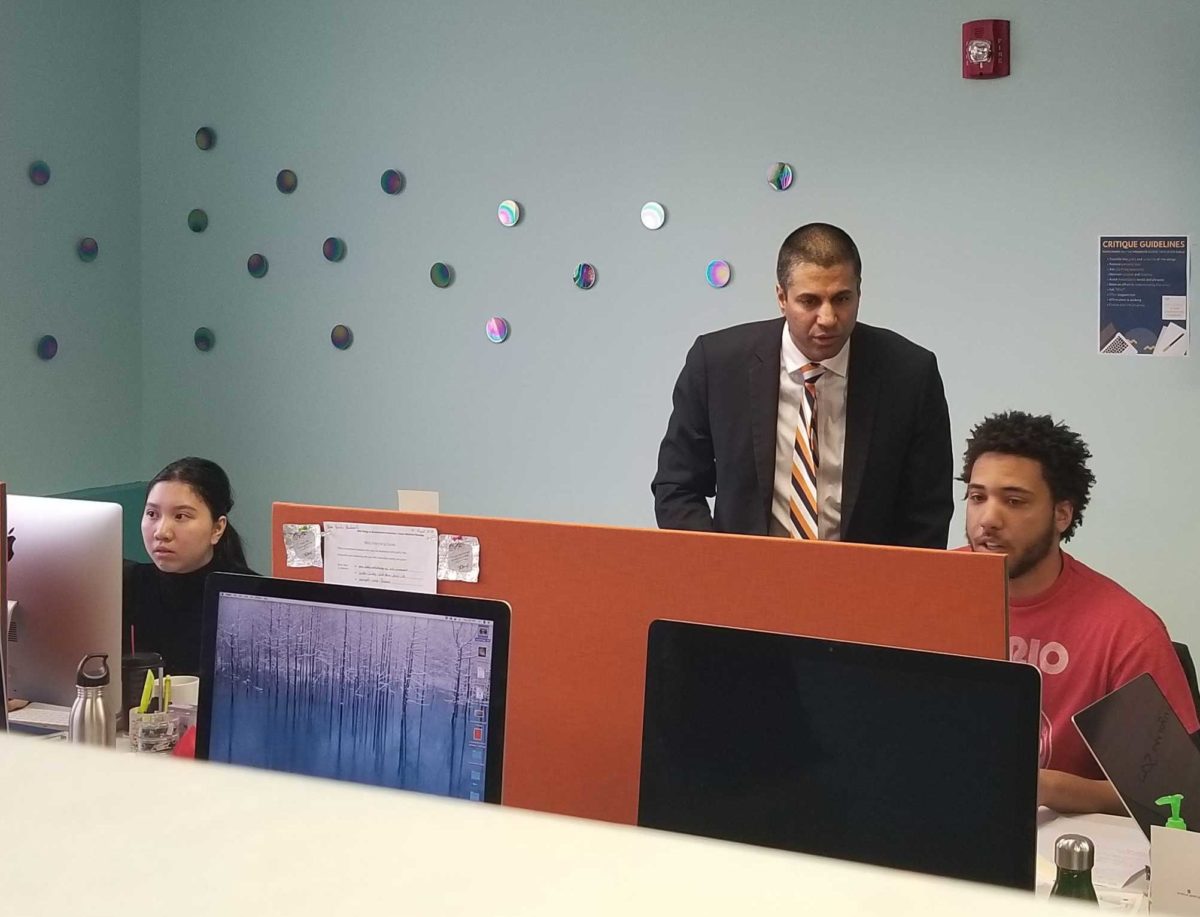Ajit Pai, chairman of the Federal Communications Commission, says the three-page Save the Internet Act doing the rounds in Congress — a push to reinstate Obama-era protections that treated broadband access as a utility — is a political play.
“Most people, I think, accurately view it as more of a political strategy, as opposed to solv[ing] a concrete problem,” Pai said last week at digital skills nonprofit Hopeworks Camden. “I don’t blame them — that’s what politicians in Washington do — but I am focused on what I think American consumers’ primary concern is: getting better, cheaper internet access, and that’s what the FCC’s been focused on so far.”
Pai was in the neighboring New Jersey city on Thursday in a bid to learn about Hopeworks, which connect at-risk youth with tech training. On Friday, he also took in a tour of makerspace NextFab in Wilmington.
New Jersey marks the 42nd state Pai has visited on what an aide described as “digital divide trips.” He recounts touring schools in New Mexico’s Jemez Pueblo which went online through public-private partnerships, and rural New Hampshire towns where wireless infrastructure for 4G LTE connectivity has been installed.
“The overall lesson I draw from it is that there’s no one solution to closing the digital divide, we have to think broadly about encouraging all kinds of companies … to try to have a strong case for deploying broadband,” Pai said. “If we set some good rules of the road in Washington I’m convinced the private sector can help connect every American with what I call the digital opportunity.”
Walking across meeting rooms and open desk areas at Hopeworks’ 6,000-square-foot hub, designed to mirror tech company offices, Pai asked students about their design work and bonded with them over browser tab anxiety.
“It’s inspiring that young people can learn to code … to take charge of their future,” said Pai. “Students here will be well positioned to get the jobs of the future and ultimately better their own lives and the lives of the community.”
Pai came under fire from activists in 2017 after leading the agency’s rollback of the Title II classification of internet access, a move that Philly’s Media Mobilizing Project said favored large telecom companies such as Comcast and Verizon. Conversely, execs like Comcast’s David Cohen welcomed the rollback at the time, saying Title II rules stifled investment and innovation.
“I favor a free and open internet,” Pai said, after meeting with students from the Camden program. “That’s we had prior to 2015. A lot of the hysterical predictions of doom have been demonstrated [to be] false,” said the exec, citing Recode’s report that broadband speeds across the country were up across the board.
Though speeds, per the report, are on the rise, connectivity across the bridge from Camden is going the opposite way.
In Philly, the Inquirer reported at the end of last year, large numbers of Philadelphians lack fast internet services in their homes. National broadband penetration rate by household, according to census data, was 83.5 percent, whereas in Philadelphia the rate was 71.6 percent, the second-lowest among the country’s 25 largest cities.
(In the Philadelphia area, Comcast’s discounted internet program Internet Essentials program reaches some 196,000 subscribers, a group that includes low-income families, seniors, veterans and residents of public housing.)
Ask Pai how to counter inequities in access to the internet and he’ll point to infrastructure policies supported by the FCC, like One-Touch Make-Ready.
“Similar reforms we’ve enacted are already are making a mark,” Pai said. “One-Touch Make-Ready enables providers to get quicker access to utility poles. We’re also supporting dig-once policies: If a road is being dug-up, we want broadband providers to gain access to the conduit at the same time in order to string fiber through it. We recognize that it’s not just rural America but many parts of urban America as well that don’t have the kind of access that consumers need.”
Join the conversation!
Find news, events, jobs and people who share your interests on Technical.ly's open community Slack

Philly daily roundup: Student-made college cost app; Central High is robotics world champ; Internet subsidy expiration looms

Philly daily roundup: Earth Day glossary; Gen AI's energy cost; Biotech incubator in Horsham

Philly daily roundup: Women's health startup wins pitch; $204M for internet access; 'GamingWalls' for sports venues

